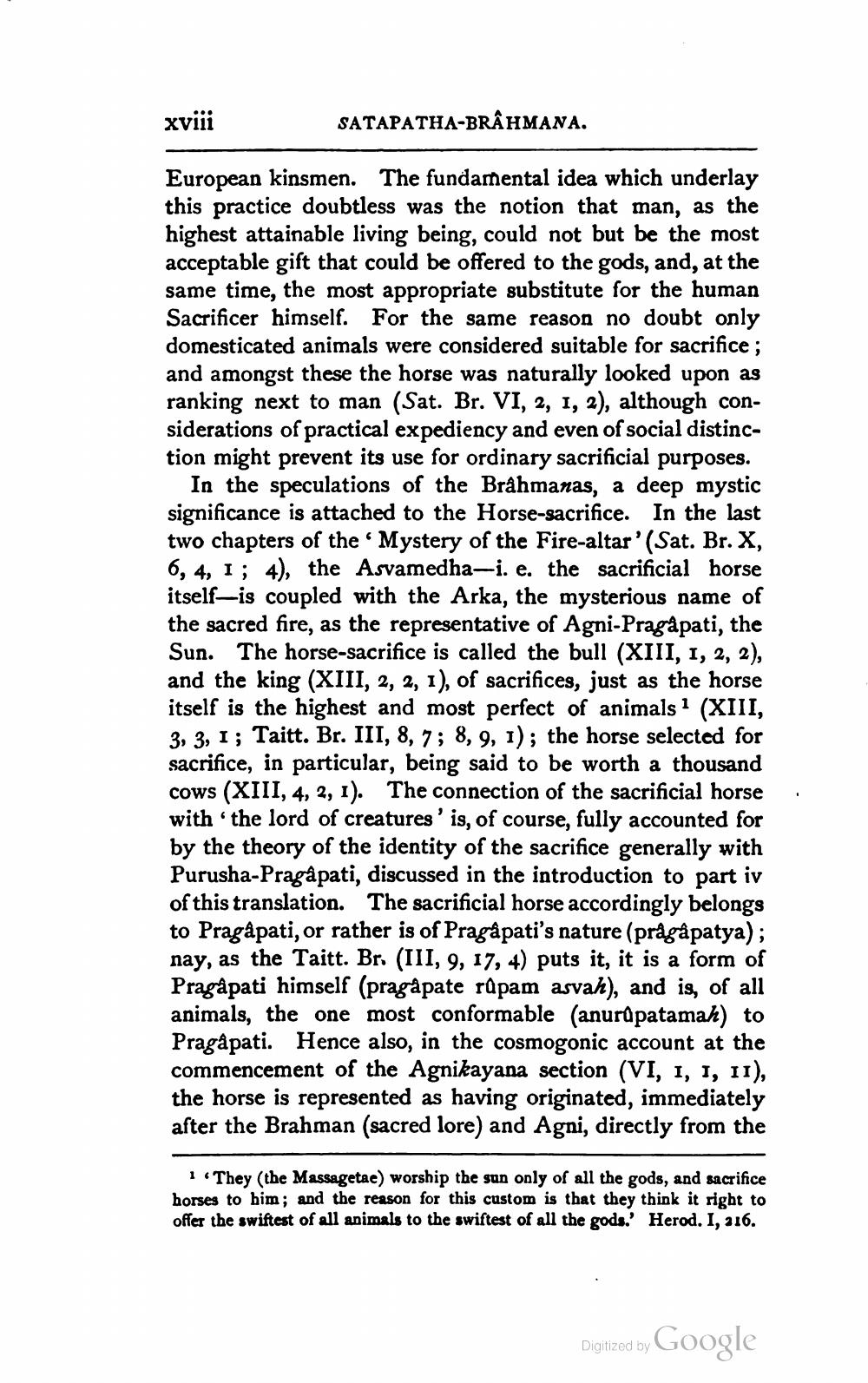________________
xviii
SATAPATHA-BRAHMANA.
European kinsmen. The fundamental idea which underlay this practice doubtless was the notion that man, as the highest attainable living being, could not but be the most acceptable gift that could be offered to the gods, and, at the same time, the most appropriate substitute for the human Sacrificer himself. For the same reason no doubt only domesticated animals were considered suitable for sacrifice; and amongst these the horse was naturally looked upon as ranking next to man (Sat. Br. VI, 2, 1, 2), although considerations of practical expediency and even of social distinction might prevent its use for ordinary sacrificial purposes.
In the speculations of the Brahmanas, a deep mystic significance is attached to the Horse-sacrifice. In the last two chapters of the 'Mystery of the Fire-altar' (Sat. Br. X, 6, 4, 1; 4), the Asvamedha-i. e. the sacrificial horse itself—is coupled with the Arka, the mysterious name of the sacred fire, as the representative of Agni-Pragå pati, the Sun. The horse-sacrifice is called the bull (XIII, 1, 2, 2), and the king (XIII, 2, 2, 1), of sacrifices, just as the horse itself is the highest and most perfect of animals 1 (XIII, 3, 3, 1 ; Taitt. Br. III, 8, 7; 8, 9, 1); the horse selected for sacrifice, in particular, being said to be worth a thousand cows (XIII, 4, 2, 1). The connection of the sacrificial horse with the lord of creatures' is, of course, fully accounted for by the theory of the identity of the sacrifice generally with Purusha-Pragàpati, discussed in the introduction to part iv of this translation. The sacrificial horse accordingly belongs to Pragapati, or rather is of Pragàpati's nature (prågapatya); nay, as the Taitt. Br. (III, 9, 17, 4) puts it, it is a form of Pragapati himself (pragapate rậpam asvah), and is, of all animals, the one most conformable (anurupatamak) to Pragâpati. Hence also, in the cosmogonic account at the commencement of the Agnikayana section (VI, 1, 1, 11), the horse is represented as having originated, immediately after the Brahman (sacred lore) and Agni, directly from the
1 They (the Massagetae) worship the sun only of all the gods, and sacrifice horses to him; and the reason for this custom is that they think it right to offer the swiftest of all animals to the swiftest of all the gods.' Herod. I, 116.
Digitized by Google




